Ndakasi
October 8, 2021
Gorilla Doctors is deeply saddened to follow-up on Virunga National Park’s announcement on October 5th of the death of orphaned mountain gorilla Ndakasi on September 26, 2021.
Ndakasi exhibited intermittent and chronic illness for several months that presented as weight and hair loss, bouts of not eating, and diarrhea. Her condition steadily deteriorated over the last three months, during which time Drs. Eddy and Fabrice conducted 18 Veterinary Monitoring Visits and performed eight Clinical Interventions to provide supportive treatment and run diagnostic tests. Following treatments with antibiotics, dewormers, anti-inflammatories, multi-vitamins, and fluids, Ndakasi would recover for a period of time. As recently as the last week of her life, she showed signs of improvement, but then took a sudden turn for the worse two weekends ago. Unfortunately, despite the tremendous efforts of both Gorilla Doctors and Ndakasi’s caregivers, she ultimately succumbed to her long-term illness (we tested Ndakasi many times for COVID, with negative results).
Read the full statement from Virunga National Park HERE.
Ndakasi’s Story
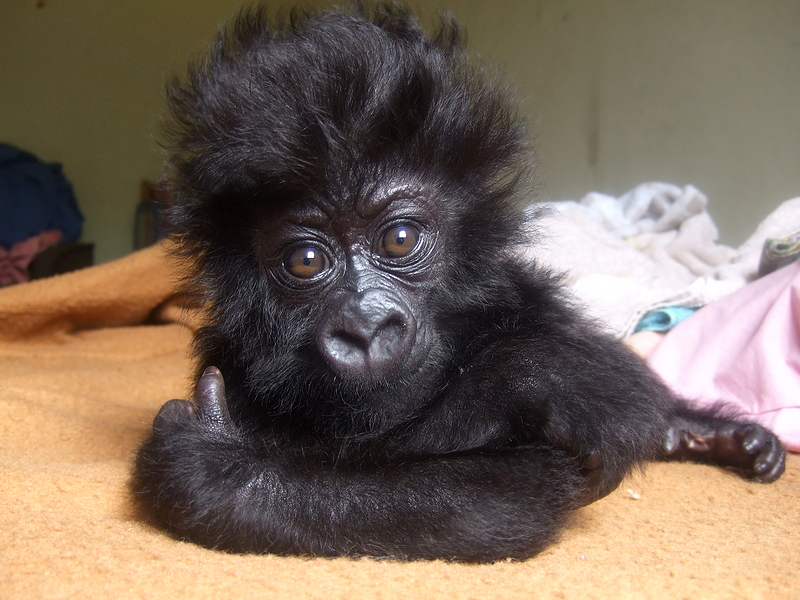
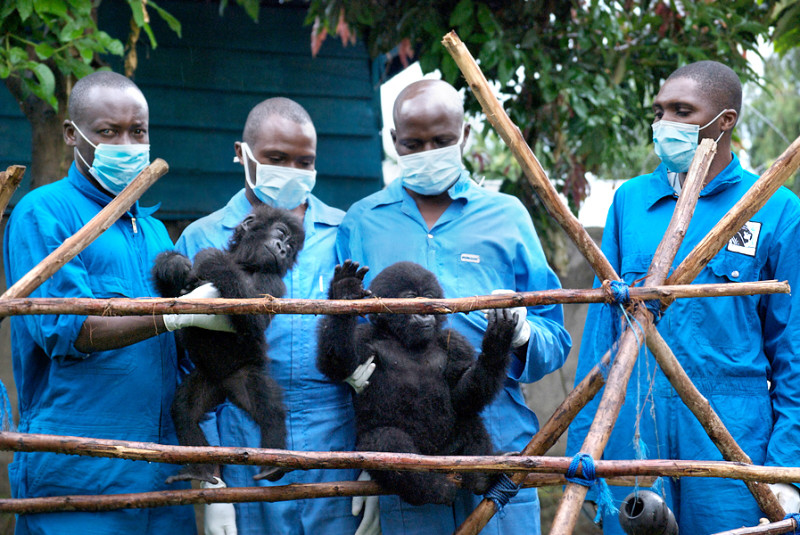
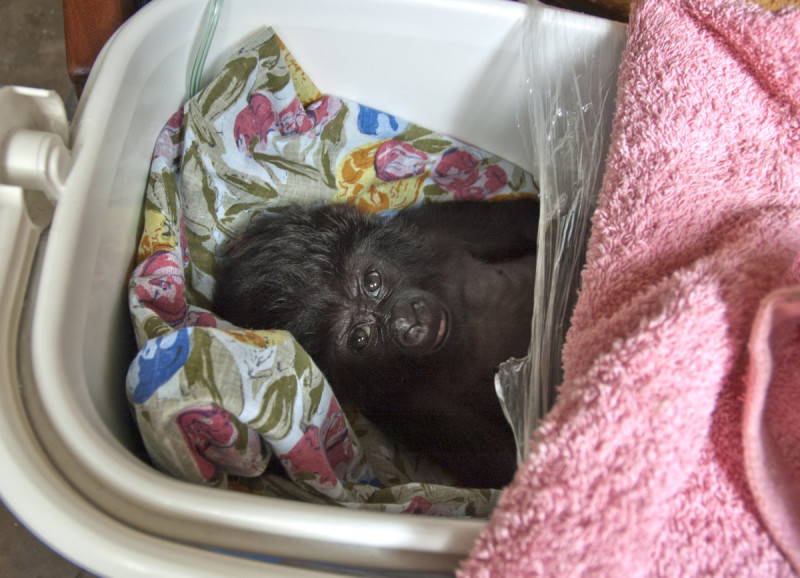
One year later, in November 2010, Ndakasi and Ndeze gained two new mountain gorilla neighbors: older orphans Maisha and Kaboko, who had been living at the Gorilla Doctors’ orphan care facility in Rwanda for several years, were moved into an adjacent large forest enclosure right next door. Ndakasi and Ndeze climbed to the tops of the trees in their enclosure and studied Maisha and Kaboko’s behavior intently. The process of integrating the two pairs of gorillas into one family group had begun.
Bringing the orphans together was more complicated than one might think. In the wild, a family group’s dominant silverback, the strongest and most experienced male, helps determine the social structure of the family and the ranking of the different members. In the case of these four mountain gorilla orphans, there was no silverback: Maisha held the highest social ranking, but had no serious leadership experience. Kaboko, the sub-adult male, was a moody adolescent. Ndakasi and Ndeze had never interacted with bigger gorillas before, and were quite convinced they were the queens of their realm.The orphans were brought together in an indoor enclosure with the two pairs residing in two rooms separated by bars so that they could see each other up close but not touch. Gradually, over a period of many weeks, the young gorillas were allowed to share the same space. There was much angst, yelling, and confrontation while the two youngsters learned to accept Maisha’s authority, and Maisha learned to protect Ndeze and Ndakasi from the mischievous Kaboko. However, the four gorillas learned to live together in the same enclosure, venturing outdoors during the day and sleeping indoors in the evening. No single orphaned mountain gorilla has ever been successfully reintroduced from captivity to a gorilla family in the wild. Gorilla Doctors and other stakeholders believe that if the orphans are ever to be released, their best chance for survival would be if they were reintroduced as a cohesive family unit.
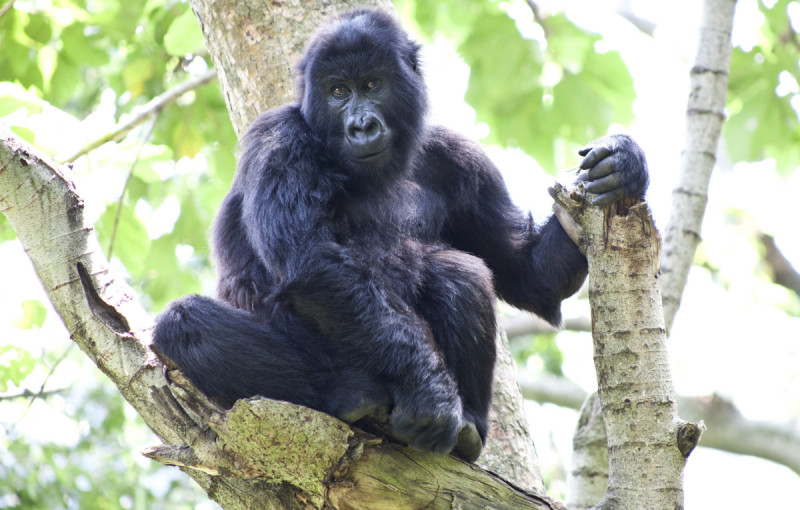
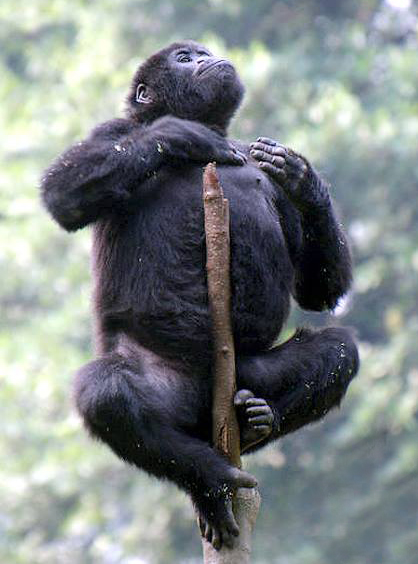
Sadly, on July 25, 2012, Kaboko, who had a history of gastrointestinal problems, suddenly became very ill and passed away. Due to intense fighting between armed groups near the Senkwekwe Center, the Gorilla Doctors were not able to reach him in time. Thankfully, Ndakasi, Ndeze, and Maisha remained safe and healthy during this difficult time thanks to their dedicated Virunga National Park caretakers.
In late June 2013, another infant male mountain gorilla was rescued outside of Virunga National Park. Matabishi was found alone in a cornfield with a large wound on his back (possibly due to a rope restraint) suggesting he may have been a victim of gorilla trafficking and had been held captive by poachers for several weeks. Under the Gorilla Doctors medical care, Matabishi’s health improved and after a period in quarantine, he was integrated into the group with Maisha, Ndeze, and Ndakasi. Maisha immediately appointed herself as the infant’s surrogate mother and carried the little male gorilla everywhere. Ndeze and Ndakasi displayed occasional bouts of jealousy, but Maisha was always quick to defend the new youngster in the group.


 Donate
Donate